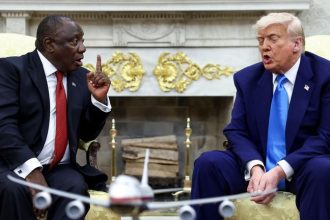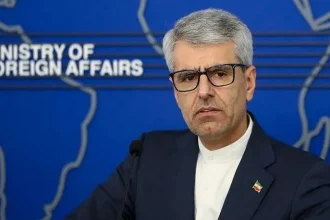The United Nations Security Council on Tuesday became the stage for a sharp disagreement between Iran and Israel over whether diplomacy could resolve tensions surrounding Tehran’s nuclear program, following a 13-day conflict between the two nations.
Iran’s Ambassador to the UN, Amir Iravani, asserted that his country “never initiated this war,” adding, “once the aggressors stopped their attacks, Iran stopped its lawful military response as well.” He emphasized Iran’s commitment to resolving disputes through dialogue, stating, “Iran continues to believe that a diplomatic resolution to nuclear and sanction issues is possible.”
Iravani called on the Security Council to condemn Israeli and United States strikes on Iran’s nuclear facilities, which are protected under International Atomic Energy Agency safeguards, and to prevent future attacks. He reiterated Iran’s adherence to UN Resolution 2231 and the Joint Comprehensive Plan of Action, asserting that Tehran’s countermeasures were “fully consistent” with these agreements.
Israel, however, dismissed diplomacy as ineffective. Ambassador Danny Danon defended his country’s military actions, describing them as necessary to counter what he called a “double existential threat” from Iran’s nuclear and missile programs. “We are often told that diplomacy must be given a chance—it was given every chance, every round, every channel, every deadline,” Danon said. “But so far it has failed. The regime in Tehran never had any intention of complying.”
Danon claimed Israel had achieved “complete air superiority” and neutralized key Iranian targets, acting in coordination with the U.S. He urged the international community to take “meaningful and decisive action” to prevent a nuclear-armed Iran from reemerging stronger.
The U.S. echoed calls for renewed negotiations but criticized Iran’s nuclear activities. Acting U.S. Permanent Representative Amb. Dorothea Shea stated that Iran’s expanded nuclear program lacked “any credible civilian justification” and pressed Tehran to return to talks.
The UK’s Ambassador Barbara Woodward welcomed the U.S.-brokered ceasefire but warned that the situation remained “extremely fragile.” She urged Iran to engage in immediate diplomacy, stressing that its nuclear activities had surpassed peaceful purposes. “All diplomatic levers will be deployed to ensure Iran does not develop a nuclear weapon,” she said.
The European Union reinforced the need for a negotiated solution, with Amb. Stavros Lambrinidis stating, “A lasting solution to the Iranian nuclear issue can only be through a negotiated deal, not military action.” He emphasized that preventing a nuclear-armed Iran remained a top EU security priority.
UN political affairs chief Rosemary DiCarlo described the ceasefire as an opportunity to avert further escalation and revive diplomatic efforts. The UN reiterated its support for the JCPOA, which aims to restrict Iran’s nuclear program to peaceful purposes in exchange for sanctions relief.
Despite the truce, deep divisions persist, with Iran advocating for dialogue while Israel and Western nations demand concrete steps to curb Tehran’s nuclear ambitions. The fragile peace now hinges on whether diplomatic channels can yield progress where military confrontation could not.







